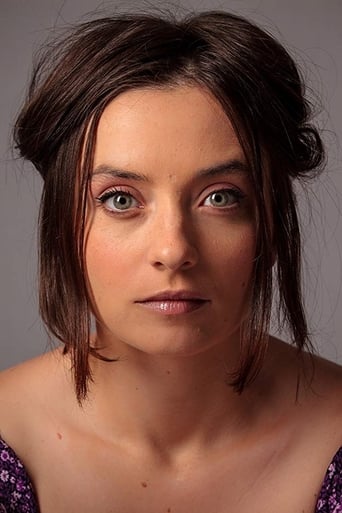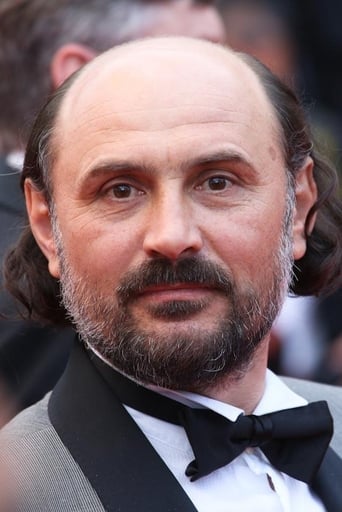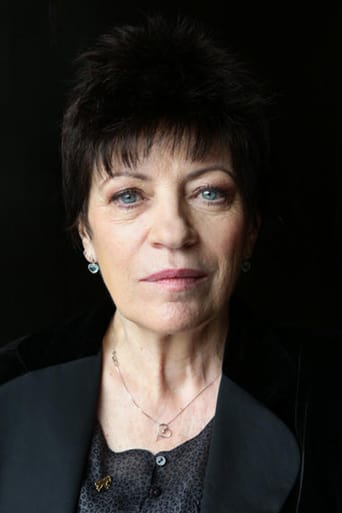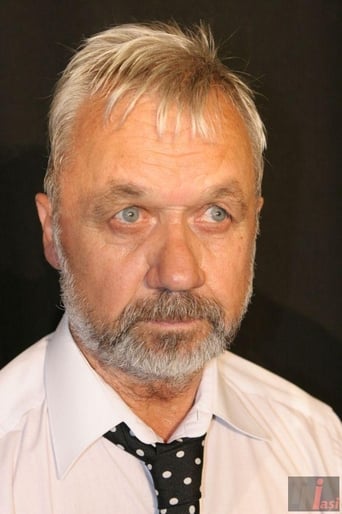Gutsycurene
Fanciful, disturbing, and wildly original, it announces the arrival of a fresh, bold voice in American cinema.
swavekzykus
Save yourself 2 hrs of life and go to bed early if you have nothing else to watch.Seriously.Characters are unrealistic, not much of a story, the biggest puzzle for me is how it got the main prize in Cannes..... Acting is poor, there is no background to understand what brings and keeps the women in the monastery, why blind obedience and suppressed feelings.There is no clues to what happened in the past between the two,main characters, and it is hard to believe that such different characters could have ever had much in common. Poor 'story' - as far as I am concerned, there is no story.
rowmorg
The profane love between two orphanage graduates causes mayhem in a cute little nunnery far from anywhere. It's a contemporary theme (if not too popular with lesbians in its implications) that brought two Romanian actresses world acclaim at Cannes film festival.The lengthy story takes pains to set the scene in the impoverished little community of half a dozen nuns, two novices, and one male priest. The nuns get up in the middle of the night to read scripture, and one of the nuns starts reading out a list of 624 sins from some text or other. The intervening girl seems to have committed all the first 17 that she reads. After she confesses, the priest awards her 1,000 prostrations, and various other tasks in order to purify herself. However, she remains very sceptical and outspoken about her predicament. She wants her friend and nothing else will do.She goes nuts when her friend (a novice) asks her, in relation to her confession: "Did you mention self-abuse?", meaning masturbation. And it all goes downhill from there, until the priest is convinced to read the ceremony for casting out devils. Alina has to be strapped down on a crucifix-shaped pallet to perform this. She is kept thus for several days and eventually appears calm, then suddenly dies. The cops arrive and tell them they could all face sentences of 20 years. Apparently in the real story, the priest got eight years and the others got five, although the film leaves us unknowing.I found this foreign film riveting viewing, and strongly recommend getting to enjoy it.
cripastor
Mungiu has managed in his films a perfect balance between portraying specific Romanian social-cultural issues and in the same time rendering them universal for the public abroad. He touches some of the Romanian taboos like the Orthodox church and its often brainwash practises, the efficiency of God-like doctors or the dark side of some of the do-gooders in social aid and work. The irony is that while all the characters in the film proclaim often and loud that they are sympathetic towards the orphan girl they are also the authors of her greatest abuses , from financial rip off to medical neglect or physical restraint .The system itself is rejecting the poorest and most vulnerable young people as is pointed out throughout the film by the recurrent motif of 'we have nowhere to go' leaving them in the hands of an often merciless world .In the very best of tradition of the superstitious Christian Romanian culture the real problems are avoided as they will throw a negative light back on everyone so it is easiest to blame all on evil spirits .The last scene gives a great insight into an emotionally devoid society , when such individual drama will become another media circus headline.
dromasca
Like with many good films as there are many possible readings of the film and I'm sure its perception and understanding is and will be different depending on the personal experience of the audience, their relationship to the concepts of faith and friendship that are addressed in the film, their knowing of the realities of Romania today. First of all I think this movie should be seen as a work of art, a reflection and an opinion on a piece of reality, there is no judgment or assertion in the film with one exception that I will mention later, no pretend to express an absolute truth about the whole of the reality and even about the small universe of his characters. The viewer is left right to decide or judge, to sympathize or be indignant. Everybody at his own risk.In a way the subject of 'Beyond the hills' takes one of the central themes of '4 Months, 3 Weeks and 2 Days', the friendship between two female characters, two young women barely out of the teens, who must face a world of hazards. Unlike the movie that received the most important prize at Cannes a few years ago, here the heroines are girls much simpler as education, marked by fate from birth, being abandoned in an orphanage, where they become friends, and there are enough clues in the film that shows their relationship becomes more than just a friendship. Fate separates them for a while and when the film begins Alina (Cristina Fluture) returns from Germany to take her girlfriend Voichita (Cosmina Stratan) with her to work abroad.The relationship between Alina and Voichita develops slowly before our eyes. Alina finds Voichita at peace with the world after in a small monastic community between hills, among sister nuns and under the guidance of the priest (Valeriu Andrii) whom affectionately she calls 'Daddy'. The ascetic life of nuns, the caring relationships with the village or small town nearby are described simply and honestly, they seem positive and beneficial in a world that changes to the unknown and not necessarily for the better. It is true that the primary focus is to materiality, to solutions that offer peace and refuge in ritual rather than a deep spirituality, but no other institutions presented in the film (hospitals, police) seem to be able to provide clearer answers or solutions problems faced by people. Despite negative criticism received by the film in Romania, I believe that the approach taken by the script towards the church is at least neutral, if not positive at least up to a point.The friendship or more than friendship, love between two girls will slowly be evolving toward tragedy. Whilst for Alina the love for Voichita is an obsession, Voichita is trying to attract her friend towards the life she had chosen. Mungiu does not give any explanation in terms of the reasons or motivation of Voichita's faith and and also not about Alina's violent outbursts, often they are not shown explicitly, we know they happen through the eyes of other characters. Is this a case of possession, and then resort to exorcism might be motivated, at least in terms of a certain category of religious beliefs? Or maybe it's a mental illness in the family, perhaps hereditary, as suggested by the character of the brother (Ionut Ghinea)? I was taught to believe that diseases can be cured in hospitals or specialized medical institutions, the science sooner or later finds a remedy. None of this happens in the film, profane systems seem to be powerless when faced with Alina's case and appeal to the sacred, even in an extreme form seems justified in the logic of the story. Watershed and breaking is the decision that cancels free will. It is the only time when we feel that Mungiu has an attitude. Everyone is well intentioned when the decision is taken to proceed with exorcism, but the lack of authority to make a decision regarding the fate of a man pushes things a fatal slope. Here comes the extreme, even violent part of the movie, but again it is narrated in a detached manner, with attention to details, especially emotionally significant details. For a moment I felt however that Mungiu's neutrality mask seemed to have fallen.I will not dare describe the many moments of beauty and truth in the film. Mungiu creates together with the operator a life image of the small monasteries that remain imprinted in memory, with the white of the snow righteous unable to purify or even cover horror. The truth will come to light sooner or later in terms of the secular society. Not in terms of spiritual, sacred world, the second half of reality to which the film tries to open a gate. We'll also see in the film many meals, Mungiu's film likes to put people around food, and it presents those by the filter of Christian iconography and lifestyle with amplified significance, but they are devoid of the spiritual dimension, this dimension that is missing in the film despite the presence of institutionalized church. As always for Mungiu and other representatives of his generation, the details are as important as the whole, the secondary characters are as rigorously chosen and each portrait is as living and complex as the lead ones. Acting is impeccable. The Romanian cinema is still on the top of the wave.






